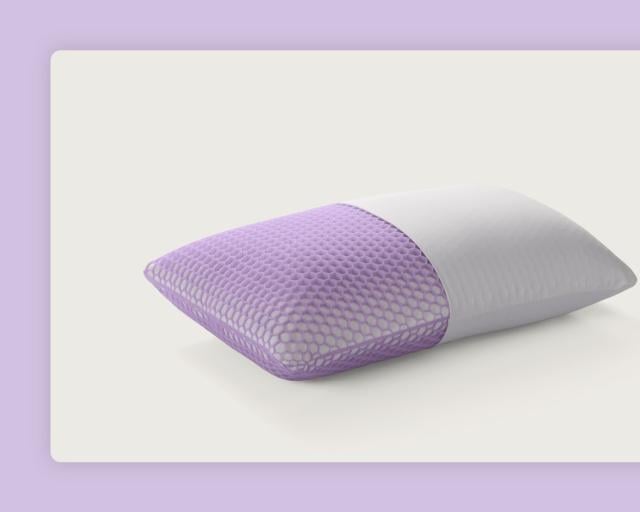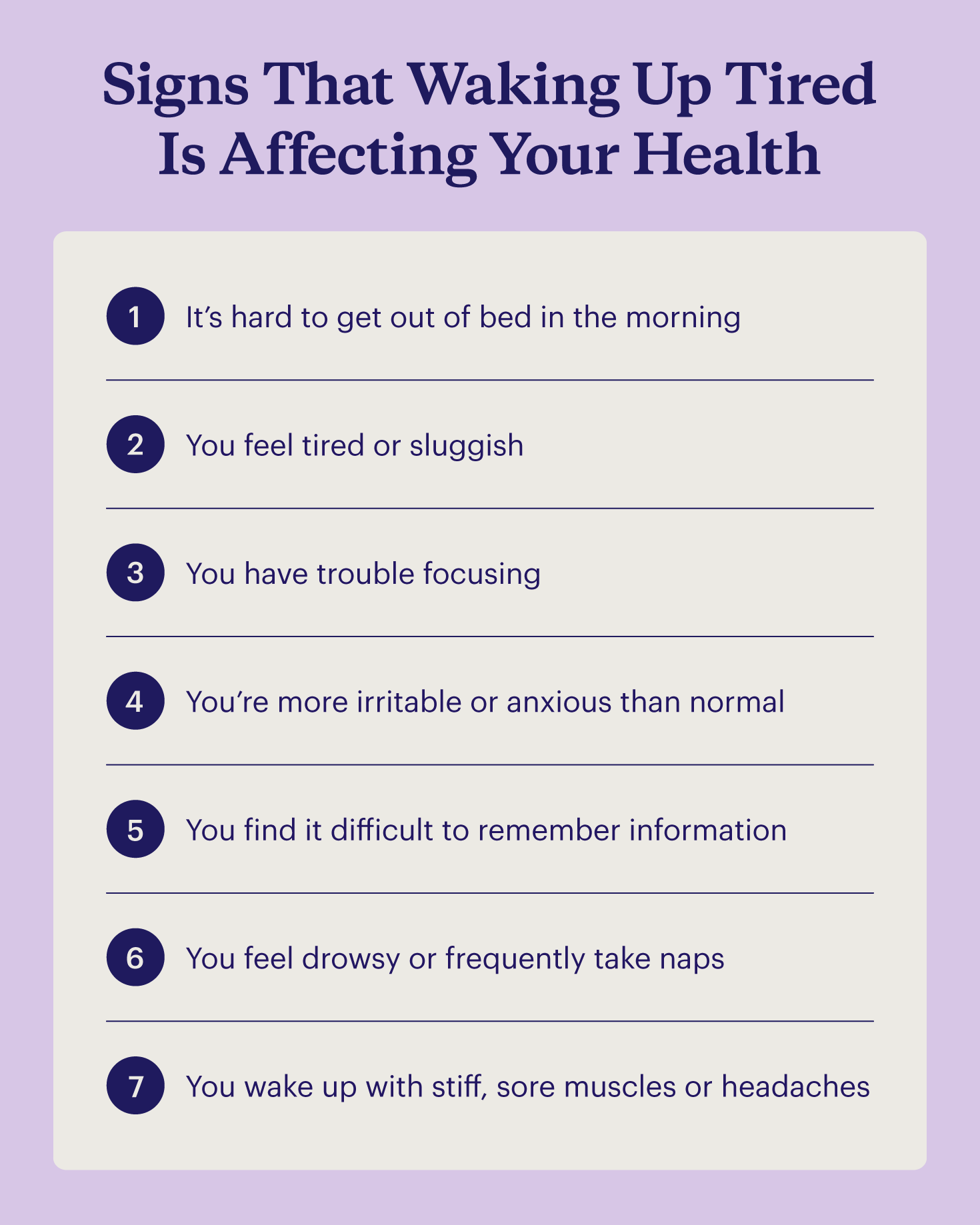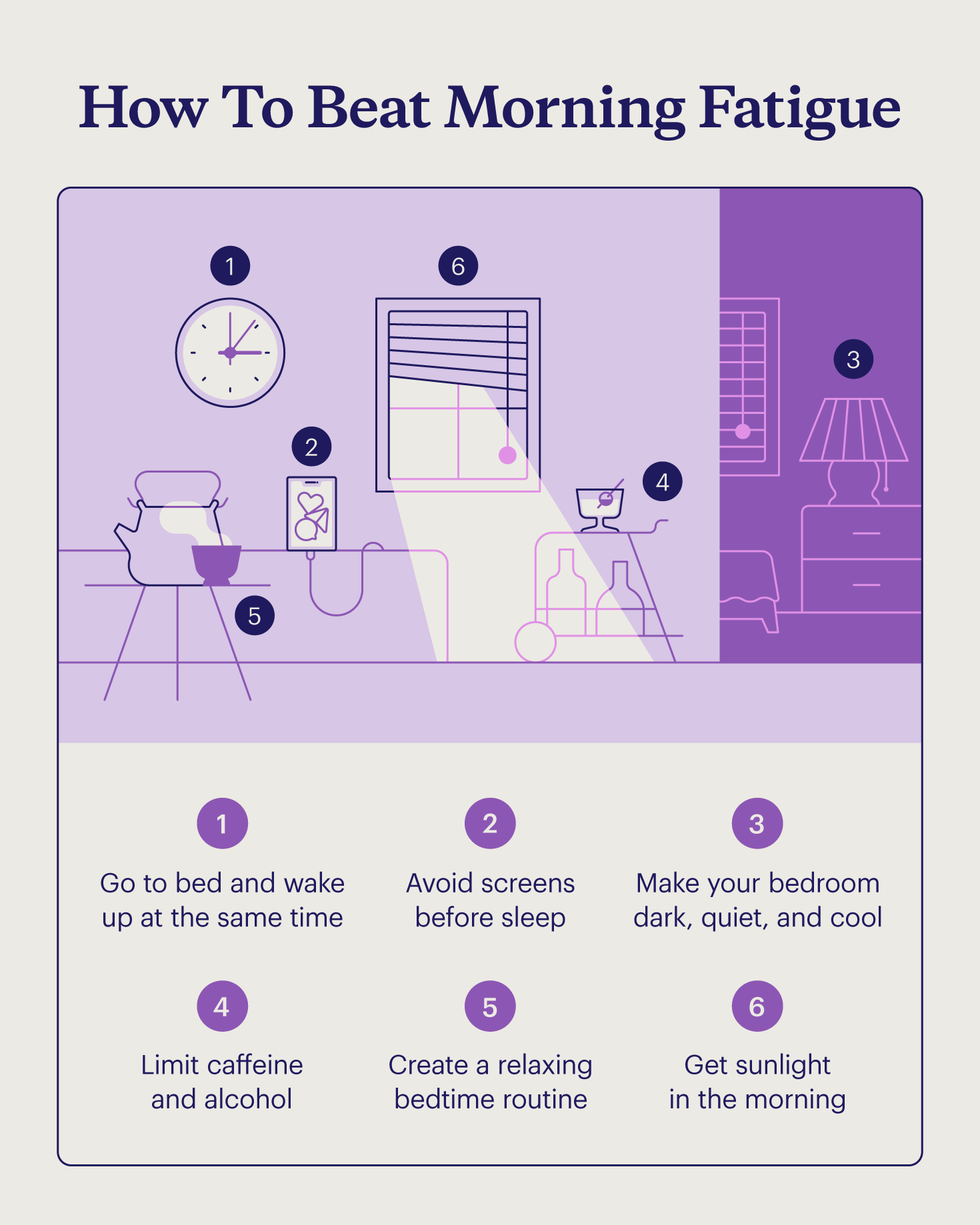
10 Common Reasons Why You Still Feel Tired After Sleeping
Why am I always sleepy?
- Common causes: Sleep disruptions (frequent awakenings, snoring), inconsistent sleep schedules, and stress or anxiety can all significantly impact sleep quality and lead to daytime sleepiness.
- Sleep inertia and idiopathic hypersomnia: Feeling groggy after waking (sleep inertia) is normal but usually short-lived. Excessive daytime sleepiness could indicate idiopathic hypersomnia; consult a doctor if concerned.
- Tips to reduce sleepiness: Maintain a consistent sleep schedule, create a relaxing bedtime routine, ensure a dark, quiet, and cool sleep environment, and limit caffeine and alcohol before bed.
Do you ever crawl out of bed in the morning feeling like you never went to sleep at all? If so, you’re not alone. Millions of adults struggle with chronic fatigue, leaving them wondering, "Why do I still feel tired after sleeping?"
This persistent tiredness can significantly impact your quality of life, making it difficult to concentrate, focus, and be productive. It can also affect your mood, leaving you feeling irritable and on edge. There are several reasons why you might be waking up exhausted. In this post, we’ll cover some of the most common causes, along with tips for how to wake up feeling more rested in the morning.
Why Do I Wake Up Tired After 8 Hours of Sleep? 10 Possible Causes
Feeling tired after a full night’s sleep can be incredibly frustrating. While aiming for eight hours is a great start, the quality of your sleep matters just as much as the quantity. Several factors can contribute to poor sleep quality, even if you’re spending enough time in bed. These can range from lifestyle habits and sleep environment issues to underlying medical conditions. We talked to four sleep specialists and medical experts to help us explore some of the most common culprits below.
Important note: This information is for educational purposes only and should not be considered medical advice. If you have persistent concerns about your sleep, please consult with a healthcare professional.
You’re Sleeping on an Uncomfortable Mattress
An old, sagging, or unsupportive mattress can lead to discomfort, tossing and turning, and ultimately, disrupted sleep. If you find yourself waking up with aches and pains, or if you consistently sleep better in other beds (like at a hotel or a friend’s house), a bad mattress might be the problem.
A mattress that doesn’t properly support your spine can cause misalignment, leading to muscle strain and discomfort that interferes with restful sleep. Some mattress materials, like memory foam, absorb body heat, which can make you wake up feeling hot and uncomfortable.
Most mattresses last about 7-10 years. If yours is older than that, it’s likely lost its support and comfort. Different sleeping positions and body types also require different levels of support and firmness.
Advances in sleep technologies have developed more comfortable materials that last longer, such as hyperelastic polymer gel featured in Purple mattresses. It's soft where you need it and supportive for proper spinal alignment. Also, it never absorbs heat so you sleep cool all night.
You Don’t Have a Consistent Sleep Schedule
Our bodies operate on an internal 24-hour clock called the circadian rhythm, and this rhythm thrives on consistency. When you go to bed and wake up at the same time every day, you reinforce this natural cycle, making it easier to fall asleep and wake up feeling refreshed. When your sleep schedule is irregular, it throws off your circadian rhythm, making it difficult to get quality sleep.
Sleeping in late on weekends, for example, can make it harder to fall asleep on Sunday night, leading to a sluggish start to the workweek. This inconsistency disrupts your body’s natural cues for sleep and wakefulness, making it harder to fall asleep quickly, stay asleep throughout the night, and wake up feeling rested. In this case, you may want to consider fixing your sleep schedule, so it’s more consistent and regular.
Your Bedtime Routine Needs Work
Just like having a regular sleep schedule is important, having a regular bedtime routine helps your body and mind transition from wakefulness to sleep. Without a proper wind-down period, your brain can remain active, making it difficult to achieve deep, restorative sleep. This means that even if you technically "sleep" the whole night, the quality of that sleep can be significantly compromised, leaving you feeling tired in the morning.
“For the patient with insomnia, practicing appropriate sleep hygiene is paramount, including going to bed the same time every night, waking up the same time every day, having a consistent bedtime routine with wind down activities to promote relaxation, avoiding late night caffeine, and reducing screen time and other activating activities before bedtime,” says Derryl Miller, Assistant Professor of Clinical Neurology, Indiana University and IU Health Physicians.1
Poor sleep hygiene habits can significantly disrupt your sleep, even if you’re spending the recommended number of hours in bed. These habits can overstimulate your mind, interfere with your body’s natural sleep-wake cycle, or create an uncomfortable sleep environment. Here are some common bad habits to avoid:
- Using electronic devices before bed: The blue light emitted from screens can interfere with melatonin production, a hormone that regulates sleep.
- Consuming caffeine or alcohol close to bedtime: These substances can disrupt sleep patterns and reduce sleep quality.
- Eating large meals before bed: Digestion can interfere with sleep and cause discomfort.
- Engaging in strenuous exercise close to bedtime: While exercise is generally good for sleep, doing it too close to bedtime can be stimulating.
- Keeping your bedroom too warm, too bright, or too noisy: A cool, dark, and quiet environment is ideal for sleep.
You Aren’t Getting the Right Amount of Sleep
While eight hours is often recommended, individual sleep needs vary. Some people function well on six hours, while others require nine or 10. If you consistently feel tired after eight hours, you might simply need more. Pay attention to how you feel throughout the day; persistent daytime sleepiness, difficulty concentrating, and low energy suggest you're not getting enough, even if you're hitting the eight-hour mark. Use our sleep calculator to find out how much you need.
“The healthiest sleep quantity in adults over 30 years old is seven hours, so it may simply be that the person is over-sleeping, which can contribute to unrefreshing sleep," says Dan Ford, Sleep Psychologist, The Better Sleep Clinic.2 "People are often surprised to hear that too much sleep (typically over eight and a half hours in adults) is associated with poorer health than too little sleep.”
Another key concept is sleep debt — the accumulated sleep loss from consistently undersleeping. Like a financial debt, it builds up and impacts your well-being. If you've been consistently undersleeping, you'll need to make up for it. This might mean extra sleep on weekends or prioritizing sleep during the week.
You Have High Levels of Stress or Anxiety
Increased levels of stress and anxiety before bed can significantly disrupt sleep quality, even if you're dedicating enough time to it. When you're stressed or anxious, your mind races, making it difficult to "turn off" your thoughts. This can lead to waking up frequently throughout the night, preventing you from reaching the deeper, more restorative stages of sleep. Stress and anxiety can also manifest in vivid or disturbing dreams, often referred to as stress dreams, which can further disrupt sleep.
The connection between stress, anxiety, and sleep is well-documented. When you experience stress, your body releases sleep-interfering hormones like cortisol. Chronic stress can lead to persistently elevated cortisol levels, making it even harder to achieve restful sleep.
“When we feel stressed and overwhelmed by life, which global burnout figures suggest too many people are currently experiencing, it impacts our sleep because high levels of the stress hormone cortisol impact our brain's ability to feel relaxed enough physically to enjoy deep sleep,” says Delia McCabe, Doctor of Neuroscience, Lighter Brighter You!3
Chronic stress may be linked to health problems like insomnia, a weakened immune system, and an increased risk of cardiovascular disease. Addressing underlying stress and anxiety is crucial for improving sleep quality and overall well-being.
Your Bedroom Isn’t Quiet or Dark Enough
Your sleep environment can also determine how well you sleep. Light and noise are two significant external factors that can disrupt sleep.4 Even subtle light from electronics or a glowing alarm clock can interfere with melatonin production, the hormone that regulates sleep-wake cycles. Noise from traffic, neighbors, or even a snoring partner can prevent you from falling asleep or staying asleep.
Try the following to create a dark, quiet bedroom environment:
- Use blackout curtains
- Wear earplugs
- Try a white noise machine
- Keep your room cool
By minimizing external disturbances, you can significantly improve your sleep quality.
Your Diet Is Keeping You Up
Certain substances, such as caffeine and alcohol, can directly interfere with sleep processes. Caffeine is a stimulant that can keep you awake and alert, even several hours after consumption.5 Alcohol, while it might initially make you feel drowsy, can disrupt sleep later in the night, leading to fragmented sleep and early morning awakenings.5
Eating large, fatty meals close to bedtime can also interfere with sleep. The digestive process can cause discomfort and keep you awake. It's best to avoid these substances and large meals in the hours leading up to bedtime to promote better sleep. Instead, prior to bedtime, consider certain foods to eat before bed to help you sleep better.
You Have a Medical Condition That Causes Fatigue
Fatigue is a type of extreme tiredness, exhaustion, or lack of energy. Feeling fatigued is normal after exerting a lot of energy, not sleeping well, or fighting off an illness. Coping with fatigue often requires rest and hydration, but your condition may vary.
Feeling tired occasionally is normal, but chronic fatigue that interferes with daily life could be due to an underlying medical condition. Several health conditions can manifest as fatigue, making it important to rule out any potential medical causes before attributing tiredness to other factors. These conditions can disrupt sleep directly, affect energy production within the body, or cause other symptoms that contribute to fatigue:
- Anemia: Anemia occurs when you have a low red blood cell count, reducing oxygen delivery throughout the body, leading to fatigue,7 weakness, and shortness of breath. Iron deficiency is a common cause of anemia.
- Hypothyroidism: An underactive thyroid gland doesn't produce enough thyroid hormone, which regulates metabolism. This can result in fatigue, weight gain, sensitivity to cold, and slowed heart rate.8
- Heart disease: Conditions affecting the heart's ability to pump blood efficiently can lead to fatigue, as the body's tissues don't receive enough oxygen and nutrients. Fatigue can be a symptom of heart failure, coronary artery disease, and other heart conditions.9
- Diabetes: Issues with blood sugar regulation, as seen in both type 1 and type 2 diabetes, can cause fatigue.10 High or low blood sugar levels can disrupt energy production and lead to feelings of tiredness and weakness.
- Medication side effects: Many medications, both prescription and over-the-counter, can have fatigue as a side effect. This can be due to the medication's direct effects on the body or its interaction with other medications. It's important to discuss any new or persistent fatigue with your doctor or pharmacist to determine if your medications could be contributing.
You Have a Sleep Disorder
Sometimes, tiredness despite adequate time in bed points to an underlying sleep disorder. Left untreated, sleep disorders can have a significant impact on your overall health and well-being. Several common sleep disorders can cause excessive daytime sleepiness and fatigue, including:
- Insomnia: Insomnia is characterized by difficulty falling asleep, staying asleep, or waking up too early.11
- Sleep apnea: Sleep apnea is a condition where breathing repeatedly stops and starts during sleep. This fragmentation of sleep leads to poor sleep quality and daytime fatigue.12
- Idiopathic hypersomnia: Idiopathic hypersomnia is less common but involves excessive daytime sleepiness even after long periods of sleep at night.13
These are just a few examples, and other sleep disorders, such as restless legs syndrome and narcolepsy, can also contribute to feeling tired after sleeping.14
“Medical disorders such as obstructive sleep apnea can lead to intermittent hypoxia and result in fragmented sleep, leading to persistent daytime fatigue,” says Sham Singh, Doctor of Psychiatry, WINIT Clinic. “Disorders such as depression and anxiety also rank high among the contributory factors since these may alter the normal sleep pattern by reducing sleep efficiency.”15
You’re Experiencing Sleep Inertia
That groggy, disoriented feeling you sometimes experience upon waking, especially if you’re jolted awake suddenly, is known as sleep inertia. It’s a transitional state between sleep and wakefulness characterized by reduced alertness, impaired cognitive performance, and feeling sluggish. Sleep inertia symptoms can range from mild difficulty focusing to significant disorientation and impaired motor skills.
The duration of sleep inertia varies for everyone, but it’s usually between a few minutes to a couple of hours. The severity and duration of sleep inertia symptoms can be influenced by factors like sleep deprivation, an irregular sleep schedule, and the stage of sleep you were in when you woke up. Waking up from deep sleep is more likely to result in more pronounced and longer-lasting sleep inertia.16
Waking Up Tired With No Energy? 6 Tips To Feel More Rested
If you’re wondering how to not be tired in the morning, there are several strategies you can try to improve your sleep quality. The following tips can optimize your sleep and help you start your day on a more positive and productive note:
- Establish a consistent sleep schedule: Going to bed and waking up at the same time every day helps regulate your body’s natural sleep-wake cycle, making it easier to fall asleep fast and wake up feeling rested. Consistency is key for training your body to expect sleep at regular intervals.
- Optimize your sleep environment: Create a dark, quiet, and cool bedroom conducive to sleep. This means minimizing light and noise distractions and keeping the temperature comfortable for sleeping, typically between 60-67 degrees Fahrenheit.
- Prioritize sleep hygiene: Practice good sleep hygiene habits, such as avoiding caffeine and alcohol before bed, establishing a relaxing bedtime routine, and limiting screen time before sleep. These habits signal to your body that it's time to wind down.
- Stay hydrated: Drinking a glass of water can help rehydrate your body after sleep and boost alertness.
- Get moving: Engaging in light physical activity, such as a short walk or some stretching, can increase blood flow and help you feel more awake.
- Get bright light: Expose yourself to sunlight soon after waking to suppress melatonin production and signal to your body that it’s time to be awake.17
If you’re still waking up feeling tired despite implementing these changes, consult with your doctor to rule out any underlying medical conditions.
Feel More Rested With Purple
There are many reasons why you might still feel tired after sleeping. These can range from lifestyle factors like inconsistent sleep schedules and poor sleep hygiene to underlying medical conditions or sleep disorders. Many people find themselves questioning why they still feel tired after sleeping when they seemingly dedicate enough time to rest, and the answer often lies in the quality of that rest.
A crucial aspect of sleep quality is your sleep environment. A comfortable and supportive mattress, along with proper pillows and bedding, is essential for restful sleep. An unsupportive mattress can cause discomfort and disrupt sleep, while improper pillow support can lead to neck and back pain. When your sleep setup is designed to properly support your body, falling asleep can feel noticeably easier—something reflected in a SleepScore Labs study where participants reported a 93% increase in how easy it felt to fall asleep18 after sleeping on a Purple Restore collection mattress.
Investing in a quality sleep setup can significantly impact how you feel upon waking. Using an adjustable base can help you relax more when getting ready for bed, and sleeping at an incline may promote better blood flow and reduce heartburn.
FAQ
Constant sleepiness despite sufficient sleep can indicate poor sleep quality, a sleep disorder, or a medical condition. Factors like an uncomfortable mattress, inconsistent schedule, or sleep apnea can prevent restorative sleep, causing daytime sleepiness. Consult a doctor if this is a regular issue.
Oversleeping disrupts your circadian rhythm, leading to increased fatigue. It can fragment your sleep cycle or disrupt natural sleep-wake patterns, resulting in grogginess. A consistent sleep schedule within the recommended range of 7-9 hours is ideal.
This pattern suggests a delayed sleep phase, where your sleep-wake cycle is shifted later. This can be due to lifestyle or predisposition; consistent sleep times and morning sunlight can help realign your rhythm.
It depends; if you've had enough sleep and have sleep inertia, getting up and starting your day is usually better. However, If you've had significantly less sleep or feel unwell, a short nap might help, but avoid excessive sleep.
Sleep inertia is that groggy feeling upon waking, especially if you’re abruptly awakened. It's a temporary state of reduced alertness and impaired cognitive performance that can last from a few minutes to a couple of hours. Strategies like consistent sleep schedules and exposure to light upon waking can help minimize sleep inertia.
A consistent sleep schedule is one of the best ways to combat sleep inertia, otherwise known as morning grogginess. Going to bed and waking up at the same time each day, even on weekends, helps regulate your body’s natural sleep-wake cycle, making it easier to wake up feeling alert.
Avoiding hitting the snooze button is also important. While it might seem tempting to grab a few extra minutes of sleep, repeatedly hitting snooze can fragment your sleep and worsen sleep inertia.
More To Explore
Level up your sleep routine with our most-loved products.






